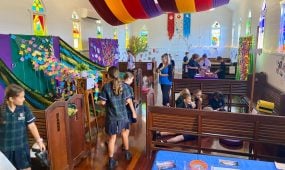Aboriginal art: remembering and healing
Features
“Growing up, I would sit with my mother and grandmother and listen to the stories of our traditional customs, hunting and gathering, creation and dreaming stories, animals in the area and daily practices. My mother guided me in translating these stories through a variety of techniques and tools onto canvas and other forms of art,” says Kuku Yalanji woman and Anglicare Southern Queensland staff member Lalania Tusa
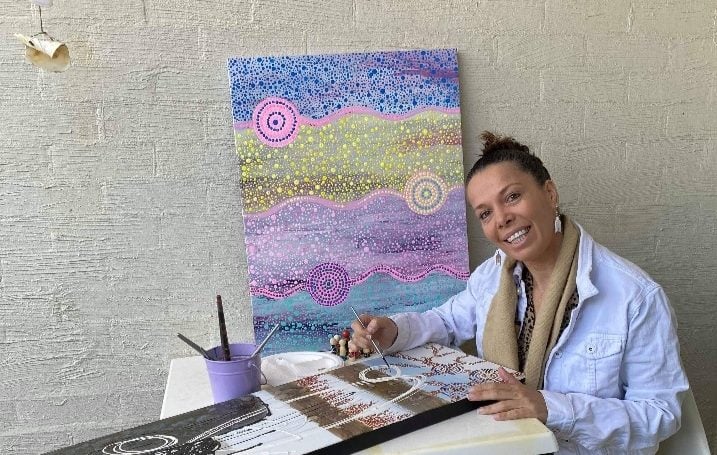
Story Timeline
How my art intersects with my faith
I am a Kuku Yalanji Traditional Owner from the rainforests of Far North Queensland who started painting Aboriginal art at a very young age. Growing up, I would sit with my mother and grandmother and listen to the stories of our traditional customs, hunting and gathering, creation and dreaming stories, animals in the area and daily practices. My mother guided me in translating these stories through a variety of techniques and tools onto canvas and other forms of art.
Advertisement
I have always maintained a strong respect and appreciation for our creation and Dreaming stories as these are grounded in beliefs that my family and ancestors have been passing down from generation to generation. My faith has always been in God and much of my art is essentially related in one way or another to this by representing and amplifying themes concerning Dreaming stories and spiritual beliefs.
When I have a paint brush in my hand and I am translating the stories that have been passed down by my family, I can express these stories through a wide range of artistic forms, styles and symbols. Through these art forms I am guided and connected to the spirit world which gives me a strong sense of belonging and connection that pays tribute to the land and sea and our creator.
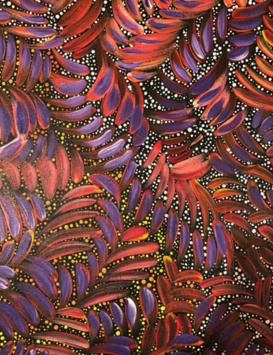
Title: ‘Dancing Spirits’ – This painting tells the story of the past Spirits that are dancing alongside us to guide and protect us through our journey here on earth. These are our past Elders who roamed the earth long before the Dreamtime and are still with us today. The purple and coloured markings symbolise the Elders and the white dots in the background represent us as the people who are still here to pass on the cultural knowledge that is vital for our Aboriginal culture to survive
My art practice has enabled me to connect with people of all ages, cultural backgrounds and genders. Each art piece holds a significant story that resonates with diverse people on different levels. Through these stories and paintings I have been given the opportunity to connect with and reach out to many people from all over the world.
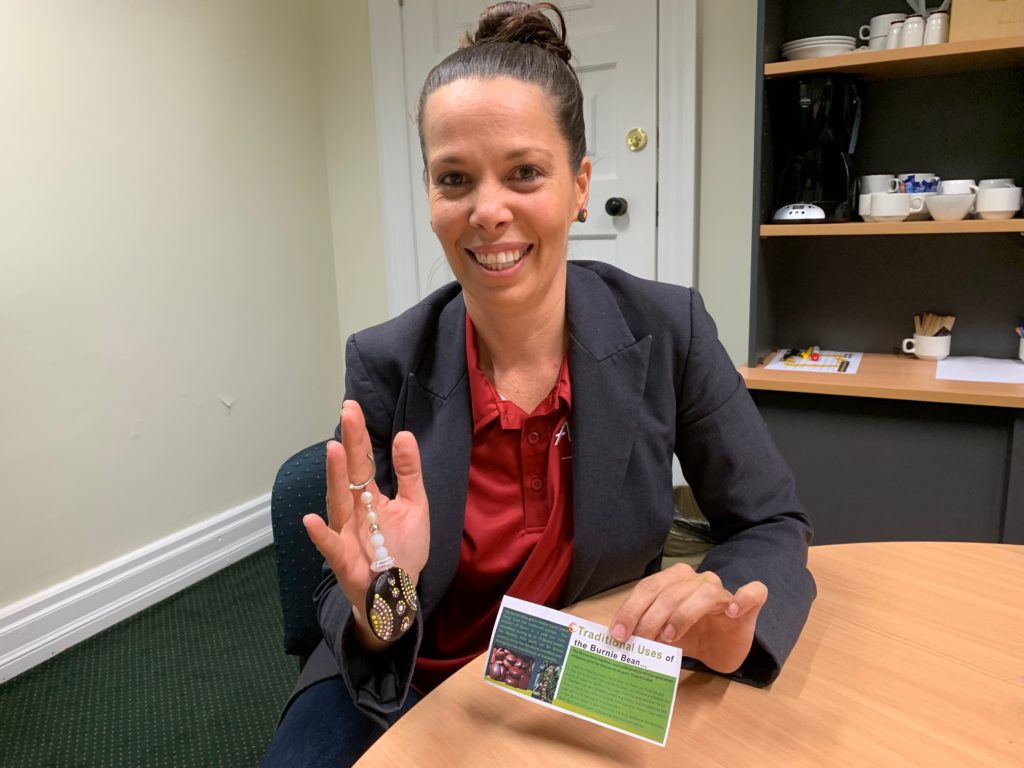
Lalania Tusa with a hand-painted burnie bean, which has been used by First Nations people in Queensland for thousands of years
Art is a channel that can directly translate each individual’s beliefs and journey in this lifetime. The journey of many First Nations people has been disrupted and negatively impacted through the colonial history of our country. This has caused enormous amounts of pain and suffering for many of our people through intergenerational trauma. As an Aboriginal woman who has experienced secondary intergenerational trauma due to the atrocities and genocides experienced by my mother and grandmother, I believe that through developing my artistic skills over time and staying connected to my culture and my faith in God, I have been given the opportunity to continue the healing process and encourage others to do the same.
Advertisement
I have been blessed with a position working within Anglicare Southern Queensland with our First Nations children who are in the foster care system. I work closely with each child in maintaining and building their cultural connection while living in out-of-home care. One of the effective and important ways that I connect with the children is through Aboriginal art. This enables me to create a safe space of sharing and learning art and cultural practices together. I will continue this journey on the Gold Coast as the Cultural Support Worker and help every child in care that I can to reach the potential that they are destined to.
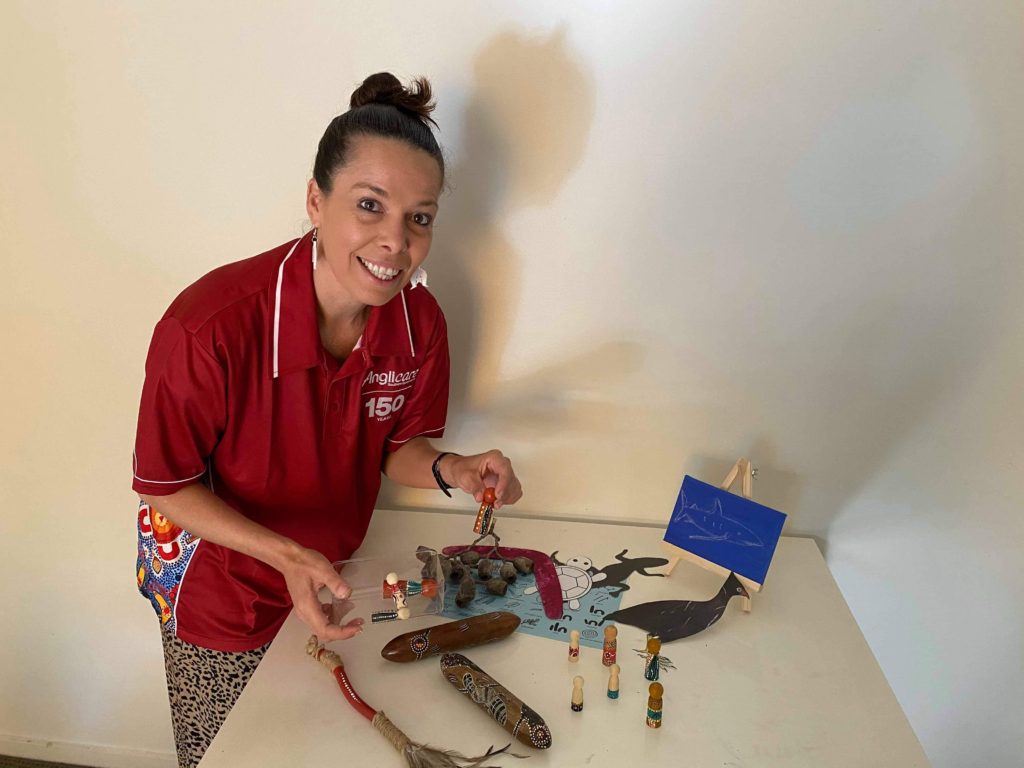
Lalania Tusa setting up art and cultural activities for the children to enjoy and learn with




